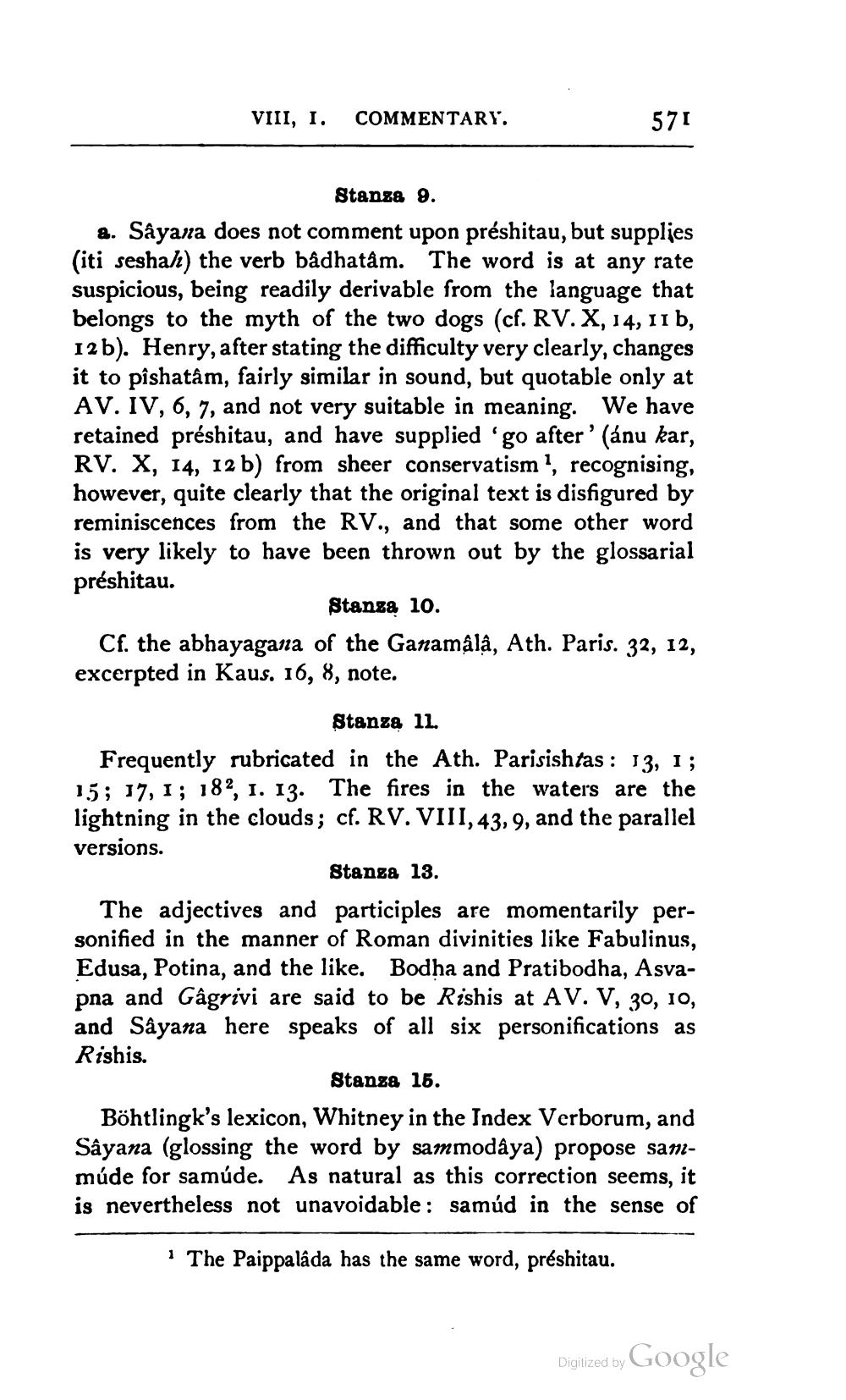________________
VIII, I. COMMENTARY.
571
Stanza 9.
a. Sâyana does not comment upon préshitau, but supplies (iti sesha) the verb bâdhatâm. The word is at any rate suspicious, being readily derivable from the language that belongs to the myth of the two dogs (cf. RV. X, 14, 11 b, 12b). Henry, after stating the difficulty very clearly, changes it to pîshatâm, fairly similar in sound, but quotable only at AV. IV, 6, 7, and not very suitable in meaning. We have retained préshitau, and have supplied 'go after' (ánu kar, RV. X, 14, 12 b) from sheer conservatism1, recognising, however, quite clearly that the original text is disfigured by reminiscences from the RV., and that some other word is very likely to have been thrown out by the glossarial préshitau.
Stanza 10.
Cf. the abhayagana of the Ganamâlâ, Ath. Paris. 32, 12, excerpted in Kaus. 16, 8, note.
Stanza 11.
Frequently rubricated in the Ath. Parisishtas: 13, 1; 15; 17, 1; 182, 1. 13. The fires in the waters are the lightning in the clouds; cf. RV. VIII, 43, 9, and the parallel
versions.
Stanza 13.
The adjectives and participles are momentarily personified in the manner of Roman divinities like Fabulinus, Edusa, Potina, and the like. Bodha and Pratibodha, Asvapna and Gâgrivi are said to be Rishis at AV. V, 30, 10, and Sâyana here speaks of all six personifications as Rishis.
Stanza 15.
Böhtlingk's lexicon, Whitney in the Index Verborum, and Sâyana (glossing the word by sammodâya) propose sammúde for samúde. As natural as this correction seems, it is nevertheless not unavoidable: samúd in the sense of
'The Paippalâda has the same word, préshitau.
Digitized by
Google




